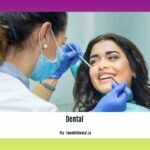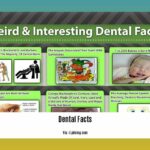Welcome to “What Your Mouth Reveals: Cracking the Code to Oral Health”, where we dive into the fascinating world of oral health and its connection to your overall well-being. As a seasoned dental professional with over a decade of experience, I have dedicated my career to deciphering the hidden hints that your mouth reveals about your health. From diagnosing oral conditions to educating patients on the importance of oral hygiene, I have honed my skills to uncover the secrets that your mouth holds. Join me on this journey as we unravel the intriguing insights and learn how to identify potential health issues through oral manifestations.

What does your mouth tell you?
Have you ever considered that your mouth might be a window into your overall health? It’s true! Your mouth often reveals hidden hints about the state of your well-being. As a seasoned dental professional, let me guide you through deciphering these secrets and unraveling the connection between oral health and systemic well-being. Together, we can crack the code to oral health.
Cavities: More than Just Tooth Decay
It’s not uncommon for a previously cavity-free mouth to suddenly develop cavities. But did you know that this could actually indicate an underlying health issue such as diabetes? When your body struggles to regulate blood sugar levels, it can manifest in your oral health. Keep an eye out for unexpected cavities and consider getting screened for diabetes if they appear out of the blue.
“Cavities can be an early warning sign of diabetes. Your mouth might just be trying to tell you something about your overall health!”
Bleeding Gums: A Red Flag for Heart Disease
Those moments when you notice your gums bleeding may be more than just a nuisance. In fact, it could be a warning sign of an increased risk of heart disease. Researchers have discovered a link between gum disease and cardiovascular problems. So, don’t ignore that bleeding gum and remember to schedule regular dental check-ups to safeguard your heart health.
“Your gums bleeding might just be a sign that your heart needs some TLC too. Don’t overlook the connection between your gums and your cardiovascular system!”
Tooth Erosion: The Silent Clue of GERD
If you’ve been experiencing tooth erosion, it may not be solely due to aggressive brushing or acidic foods. Gastroesophageal reflux disease (GERD) could be the culprit. When stomach acids flow back into the mouth, they can gradually wear away the protective enamel on your teeth. Consult your dentist if you suspect GERD is causing your tooth erosion.
“Tooth erosion might not just be from your brushing technique. It could be a stealthy sign of GERD. Your mouth is trying to tell you something about your stomach!”
White Spots on the Tongue: Indicating Oral Thrush
Have you noticed white spots on your tongue that don’t seem to go away? They could be a sign of oral thrush, also known as oral candidiasis. This fungal infection can occur when the balance of bacteria in your mouth is disrupted. If you suspect oral thrush, it’s essential to seek treatment to prevent further complications.
“The white spots on your tongue might not just be harmless. They could be a signal of oral thrush. Pay attention to what your mouth is trying to communicate!”
Worn Down Teeth: A Clue to Sleep Apnea
You might be surprised to learn that worn down teeth can be linked to sleep apnea. When someone with sleep apnea frequently grinds or clenches their teeth during the night, it leads to tooth erosion and wearing down of the enamel. If you notice this damage, consult your dentist and consider getting evaluated for sleep apnea.
“Do you have worn down teeth? It might not just be stress. Your mouth could be revealing a potential sleep apnea issue!”
Lesions on the Lips and Mouth: A Possible Indication of HPV
If you spot lesions on your lips or inside your mouth, it’s essential not to ignore them. They could potentially be caused by the human papillomavirus (HPV), a sexually transmitted infection. Regular dental check-ups are crucial to identify and monitor any suspicious lesions, ensuring early detection and appropriate management.
“Those lesions on your lips and inside your mouth might just be a sign that you need to be mindful of your sexual health. Your mouth can give us vital clues!”
Bad Breath and Dry Mouth: Hints of Underlying Health Problems
Persistent bad breath and dry mouth can go beyond just oral hygiene issues. They can also indicate other health problems, such as respiratory infections, liver disease, or diabetes. So, if you find yourself struggling with these symptoms, consult with your dentist and primary care physician to uncover any underlying health conditions.
“Bad breath and dry mouth might seem harmless, but your body could be trying to communicate something deeper. Don’t ignore these signals from your mouth!”
A Balanced Diet and Regular Exercise: A Recipe for Mouth and Body Health
Maintaining overall health goes hand in hand with oral health. A balanced diet rich in essential nutrients and regular exercise contribute not only to a healthy body but also to a healthy mouth. So, remember to fuel your body with nutritious food, stay active, and prioritize self-care to enjoy the benefits of optimal oral and overall well-being.
“A balanced diet and regular exercise aren’t just good for your waistline, they also contribute to a happy and healthy mouth and body. Take care of yourself inside and out!”
Preventive Dental Care: Your Best Defense
By now, you understand the wealth of information that your mouth holds about your overall health. From cavities to bleeding gums and even white spots, your mouth is constantly dropping hints. That’s why prioritizing regular dental check-ups and practicing good oral hygiene are crucial. Think of preventive dental care as your best defense against potential health issues and let your mouth guide you towards a healthier life.
“Your mouth is a treasure trove of knowledge. Regular dental check-ups and daily oral hygiene practices are your shield against underlying health problems. Don’t underestimate the power of preventive dental care!”
So, the next time you examine your mouth in the mirror, remember that it’s not just about a beautiful smile. It’s about discovering the intricate clues your mouth holds about your overall health. Cracking the code to oral health begins with paying attention to what your mouth is trying to tell you. Are you ready to unlock the secrets?
The mouth is a fascinating part of the human body, full of interesting facts and secrets waiting to be discovered. If you’ve ever wondered about the wonders of oral health or wanted to know more about the intricacies of our teeth, then you’re in luck! We’ve compiled a list of intriguing facts about the mouth that will leave you amazed. From the importance of brushing and flossing to the surprising ways our taste buds work, these facts will give you a whole new perspective on the incredible world inside our mouths. So, go ahead and click here to uncover these mind-blowing facts about the mouth: facts about mouth.
What Lives Inside Your Mouth?
[youtube v=”v0crP-3dRBE”]
Bacteria: The Tiny Residents of Your Oral Cavity
Inside your mouth, there exists a world that is invisible to the naked eye. While we are aware of the presence of trees, birds, and bugs, there is another group of living organisms that escape our notice – bacteria. These microscopic creatures find our mouths to be the perfect environment, with its dark, damp, and warm conditions. It’s important to note that not all bacteria in our mouths are harmful; in fact, some play a beneficial role. However, some types of bacteria form a sticky substance called plaque on our teeth, which can lead to dental issues.
“We all have bacteria living in our mouths. They love it there because the inside of our mouth is dark, damp, and warm.”
The Role of Sugary and Starchy Foods in Tooth Decay
An important aspect to understand about dental health is the role that our diet plays. The foods we consume, especially those high in sugar and starch, provide a feast for the bacteria residing in our mouths. When these bacteria consume these foods, they produce acids that attack the enamel protecting our teeth. Over time, these acid attacks can lead to tooth decay and the formation of cavities.
“Many of the foods you eat, especially sugary and starchy foods, cause the bacteria in plaque to produce acids. These acids attack your tooth enamel and after many acid attacks, your teeth decay or get cavities.”
Taking Control of Your Oral Health
The good news is that we can take steps to combat these issues and protect our oral health. Proper oral hygiene practices, such as brushing our teeth with fluoride toothpaste, are crucial. Additionally, adopting a balanced and healthy diet, while limiting snacking, can significantly improve our oral health.
“Yes, you can brush your teeth with a fluoride toothpaste, eat healthy meals, and limit the number of times you snack. And when you do snack, eat healthy foods.”
The Importance of Regular Check-ups
Maintaining oral health involves more than just personal care. Regular dental check-ups and preventive care are essential parts of a comprehensive oral health routine. These visits allow dental professionals to detect any signs of underlying health issues that may manifest in our mouths, such as diabetes, heart disease, or gastroesophageal reflux disease (GERD). Even seemingly harmless conditions like white spots on the tongue or lesions on the lips could potentially have deeper underlying causes.
“Preventive dental care and regular check-ups are important for maintaining oral and overall health.”
In conclusion, understanding what lives inside our mouths is a crucial step in maintaining our dental health. By being aware of the role bacteria play, the impact of our diet, and the importance of regular check-ups, we can take control of our oral health and contribute to our overall well-being. So, let’s prioritize our oral hygiene, make healthier food choices, and schedule those dental appointments to ensure a radiant smile and a healthy body.

FAQ
Question 1
What are some oral manifestations that may indicate underlying health issues?
Answer 1
Some oral manifestations that may indicate underlying health issues include cavities in a previously cavity-free mouth indicating diabetes, bleeding gums or periodontal disease indicating a risk of heart disease, tooth erosion caused by GERD (gastroesophageal reflux disease), white spots on the tongue indicating oral thrush (also called oral candidiasis), worn down teeth caused by sleep apnea, and lesions on the lips and inside the mouth caused by HPV (human papillomavirus). Bad breath and dry mouth may also indicate other health problems.
Question 2
What are some common oral health problems?
Answer 2
Some common oral health problems include dry mouth, jaw pain, and mouth cancer.
Question 3
How does maintaining a balanced diet and exercising regularly contribute to overall mouth and body health?
Answer 3
Maintaining a balanced diet and exercising regularly contribute to overall mouth and body health by providing the necessary nutrients and promoting good circulation. These practices help strengthen the immune system, reduce the risk of gum disease, and improve overall oral health.
Question 4
Why is taking care of your mouth through daily oral hygiene practices essential for maintaining good overall health?
Answer 4
Taking care of your mouth through daily oral hygiene practices is essential for maintaining good overall health because it helps prevent dental issues such as cavities, gum disease, and tooth loss. Poor oral hygiene has been linked to various systemic health problems, including cardiovascular disease, diabetes, and respiratory infections.
Question 5
What is the significance of oral hygiene for identifying potential health issues?
Answer 5
Oral hygiene plays a significant role in identifying potential health issues by allowing dental professionals to observe oral manifestations that may indicate underlying health conditions. Regular oral examinations can reveal clues to systemic problems and prompt further investigation or referral to appropriate healthcare providers.
- Star Ring Trends: Etsy vs Amazon - March 28, 2025
- Boost Pollinator Habitats: Baby Blue Eyes Sustainable Farming Guide - March 28, 2025
- Protect Big Black Bears: Effective Conservation Strategies - March 28, 2025
















